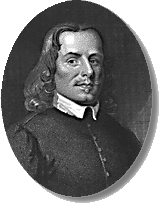
To Be a Pilgrim
I should have liked to have been a prophet. I should have liked to have had what the nineteenth-century Danish philosopher Soren Kierkegaard pointed to in the title of his book: Purity of Heart is to Will One Thing. I should have liked to have had firm convictions unaltered by the swirling currents of cultural change and my own insatiable curiosity. I should have liked to have followed the first commandment to dispense with the many gods and worship the One God. I should have liked, but instead I have engaged in an abundance of rubbernecking on my faith journey
Realistically, a far more descriptive image for me comes from the writer Anne Lamott (enriching our minds in her down-to-earth and earthy books) who describes her journey from atheism, alcohol, drugs and divorce into the Jesus community. She writes of her past experience with spirituality, before she became a Christian, using a vivid image.
Now that she has found Jesus, I wonder if she still has a patchwork God. My guess is that she has, but with Jesus now clearly at the center of the quilt and its organizing pattern.
Mine was a patchwork God, sewn together from bits of ribbon, Eastern and Western, pagan and Hebrew, everything but the kitchen sink and Jesus.
We live in that kind of eclectic, pragmatic age. Our kaleidoscopic multinational, multicultural, multiethnic, multiracial and multireligious world allows us, indeed, forces us, to consider a wide range of beliefs, ideas and behavior, and to make choices based of what works best. (This is true in arenas other than spirituality. For when I ask therapists which of the many theories and schools of psychology inform their practice, the inevitable answer is a bit of this and a bit of that, whatever works best.)
Religion honors its prophets. Their incorruptibility maintains an unvarying standard for justice, and they speak out, holding our feet to the fire of our articulated values and virtues. Such language and actions make us uncomfortable: guilty because of our unwillingness to maintain standards; and angry because our deficient commitment becomes the object of their scorn.
For this very reason the life of prophets is internally anguishing and externally troublesome. As Jesus said, "You always kill the prophets," and the prophets in the Old Testament are a vivid example of the truth of that judgment. Religion does not have the prominence today that would make it likely for prophets to be noticed by the community at large -- Martin Luther King, Jr., excepted. The contemporary secular version of the prophet is the whistleblower. Even though now laws are supposed to protect whistleblowers, clear and strong retaliatory actions still seem to be the norm.
I appreciate the prophets even though I -- by temperament and by choice -- am ill-suited to be one. If I step back and count the cost, I find I am unwilling to pay the price. Perhaps part of the reason for my not pursuing such purity of heart is the danger inherent in living by such a stringent standard. More positively, being so focused would make me miss the truly delightful variety in life and in people. Being so focused, I would have to learn to ride over the ambiguity so much a part of each situation and each person.
Still, even though in looking 'over the fence' I dearly would have liked
to have been a prophet, I wisely chose, for myself, to be a pilgrim, echoing
John Bunyan:
There's no discouragement
Shall make him once relent,
His first avow'd intent
To be a pilgrim.
| Who would true valour see, | Who so beset him round | Hobgoblin nor foulfiend |
| Let him com hither; | With dismal stories, | Can daunt his spirit; |
| One here will constant be, | Do but themselves confound. | He knows he at the end |
| Come wind, come weather. | His strength the more is; | Shall life inherit. |
| There's no discouragement | No lion can him fright, | Then fancies fly away, |
| Shall make him once relent, | He'll with a giant fight; | He'll fear not what men say; |
| His first avow'd intent | But he will have a right | He'll labour night and day |
| To be a pilgrim. | To be a pilgrim. | To be a pilgrim. |
John Bunyan, The Pilgrim's Progress |